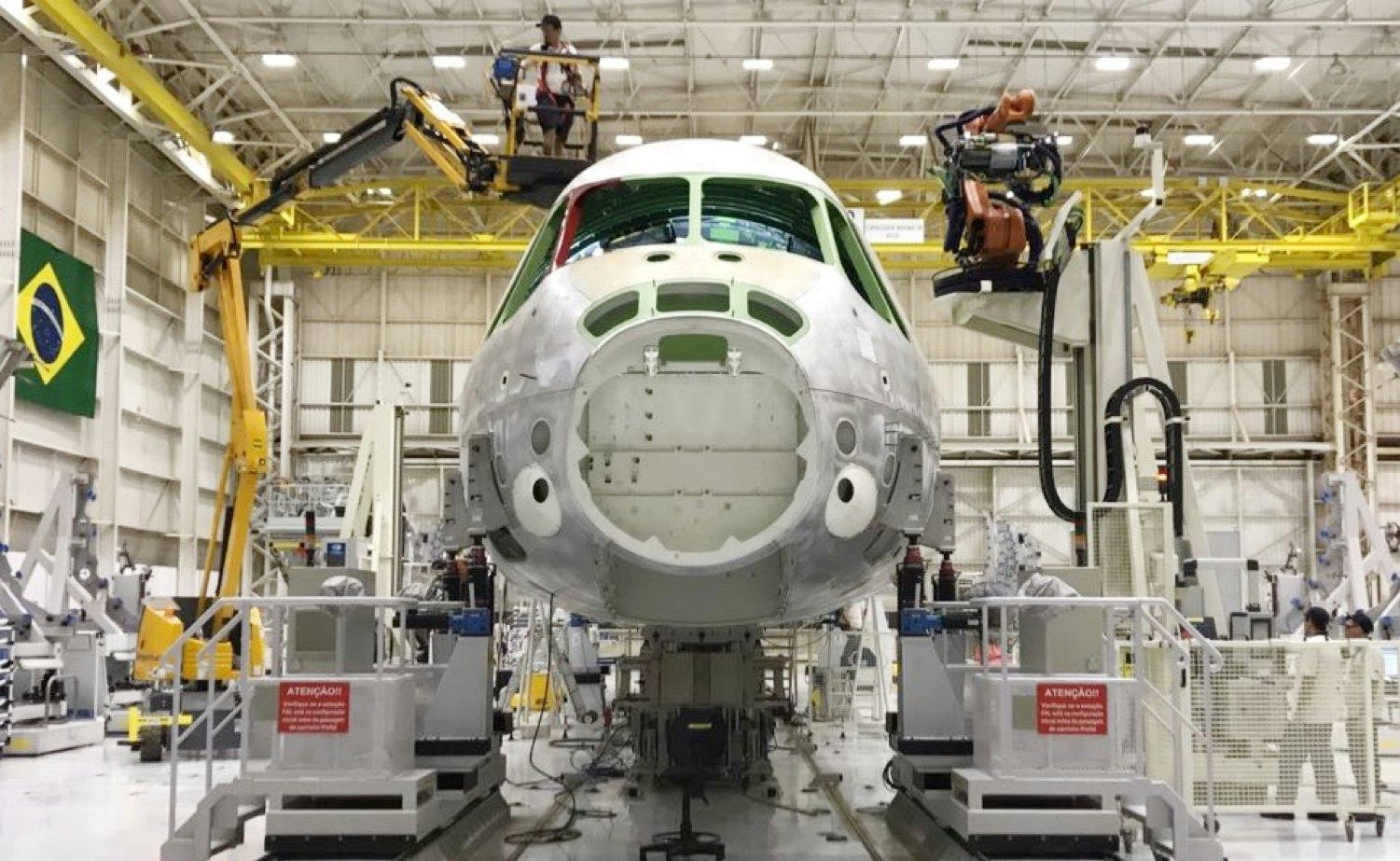أيروجيني — مساعدك الذكي للطيران.
الرائج الآن
Categories
Embraer Cancels Development of 70-90 Seat Turboprop Aircraft

Embraer Terminates Development of 70–90 Seat Turboprop Aircraft
Brasilia – Embraer has officially ended its development program for a next-generation turboprop aircraft designed to seat between 70 and 90 passengers, closing a chapter on years of speculation about the company’s entry into this regional airliner segment. The announcement was made during the company’s third-quarter earnings call, confirming that the project is not on hold but fully cancelled.
The proposed turboprop was intended to compete with established manufacturers, particularly ATR, which dominates the regional turboprop market. Although concept renderings had appeared in recent years, Embraer never committed to a formal launch. According to CEO Francisco Gomes Neto, the primary barrier to advancing the program was the absence of sufficiently advanced engine technology capable of meeting the aircraft’s targeted performance and efficiency standards.
“The turboprop initiative has been cancelled by us,” Embraer stated, emphasizing that the concept will not proceed. Previously described as being “in the deep freezer,” the project is now definitively terminated. This decision reflects a strategic shift as Embraer refocuses its efforts on other commercial aviation opportunities, though no immediate new product launches are anticipated. The company remains dedicated to investing in future technologies and exploring new aircraft concepts beyond its current E-Jet family, but only when market conditions and technological readiness are favorable.
Market Implications and Production Outlook
Embraer’s withdrawal from the 70–90 seat turboprop segment reduces competition in a market long dominated by ATR, potentially creating openings for other manufacturers to fill the void. While industry responses remain to be seen, the move signals Embraer’s strategic pivot away from regional turboprops toward strengthening its core commercial and business jet offerings.
Alongside this announcement, Embraer reported significant progress in resolving supply-chain disruptions that had previously impeded aircraft assembly. Gomes Neto noted, “The risk for the supply chain in 2025… is over. We have all the parts we need to assemble the aircraft.” The company is on track to meet its 2025 delivery target of 222 to 240 civil aircraft, which includes 145 to 155 business jets and 77 to 85 E-Jets.
In the first nine months of 2025, Embraer delivered 148 aircraft—102 business jets and 46 E-Jets—requiring at least 74 additional deliveries in the final quarter to achieve its full-year goal. Third-quarter revenues increased by 18% year-on-year to approximately USD 2 billion, although net profit declined by 29% to USD 129 million. Despite the profit decrease, Embraer maintained its full-year outlook, citing restored production stability and improved supply-chain conditions.
Strategic Direction
By cancelling the turboprop program, Embraer is reallocating resources to streamline manufacturing processes and reinforce its position in the commercial and business jet markets. The company remains cautious about launching new clean-sheet aircraft designs until the timing and technology are fully aligned but continues to invest in research and development for future aviation concepts.
Embraer’s decision marks a clear strategic realignment, narrowing competition in the regional turboprop segment while focusing on its established strengths. With supply-chain challenges largely resolved and production targets within reach, the company is positioning itself to capitalize on future opportunities in commercial aviation.

Emirates Unveils Cabin Design for New Boeing 777X

Eighteen Years On, the Airbus A380 Remains Central to a $34 Billion Airline

How a boom in luxury airline seats is slowing down jet deliveries

Navitaire Outage Attributed to Planned Maintenance

DigiYatra Debuts Outside Aviation at India AI Impact Summit

Vietnam Orders Strengthen Boeing’s Commercial Outlook

Airbus Signals Uncertainty Over Future A400M Orders

JobsOhio Awards $2 Million Grant to Hartzell Propeller for Innovation Center

Collins Aerospace Tests Sidekick Autonomy Software on YFQ-42A for U.S. Air Force CCA Program

How the Airbus A350-1000 Compares to the Boeing 777
